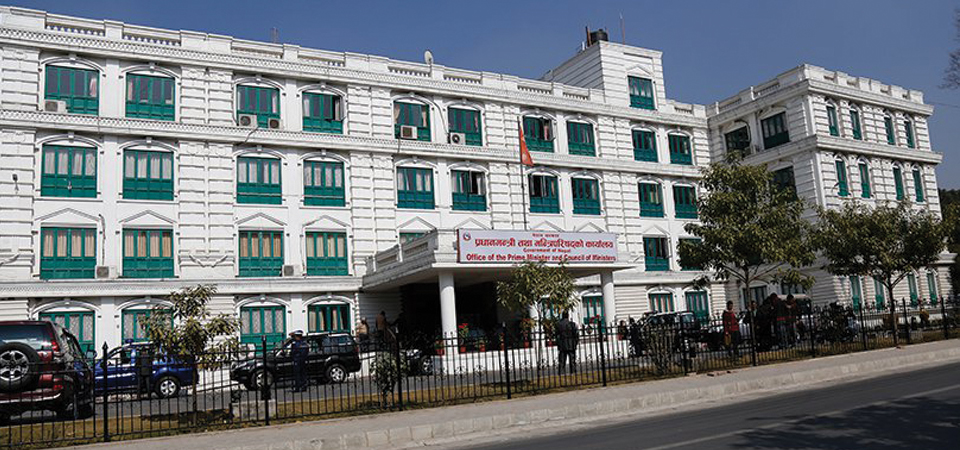‘Govt developing action plan to implement UPR recommendations’

By A Staff Reporter
Kathmandu, Nov. 30: The Office of the Prime Minister and Council of Ministers is working on a Universal Periodic Review (UPR) implementation action plan which will outline the main recommendation activities, responsible agencies, supporting agencies, time frame and monitoring indicators.
Koshal Chandra Subedi, Joint secretary at the (OPMCM) for human rights and international treaty agreement, shared this with the participants of the national-level interaction programme organised by the human rights network organisation – Beyond Beijing Committee (BBC) Nepal and the Right Here Right Now (RHRN) coalition in Kathmandu on Monday.
“Nepal considers UPR a constructive mechanism and the action plan is a part of the government’s wider efforts to strengthen human rights in the country,” Subedi said in the programme organised in collaboration with the Informal Sector Service Centre (INSEC), Women’s Rehabilitation Centre (WOREC) and Durban Review Conference Follow-up Committee (DRCFC).
The Universal Periodic Review (UPR) is a process which involves a review of the human rights records of all the member states of the United Nations.
In the third cycle of UPR held in 2021, Nepal received 233 recommendations to improve the human rights situation in the country, of which it accepted 196.
About the recommendation acceptance and rejection, Subedi clarified, “Some recommendations, such as those relating to proselytising and same-sex marriage could not be accepted due to Nepal’s social and cultural context and others had to be rejected because of geo-political concerns.”
Deepak Jung Dhoj Karki, Joint Secretary at the National Human Rights Commission (NHRC), stated that it was not only the responsibility of the state to implement the recommendations of the UPR and urged the non-governmental sector and civil society organisations to play a supporting role.
He also stressed the need to include local governments in the UPR implementation and form a centralised and accessible human rights database.
Various other stakeholders from UPR alliances also used the programme to call on the government to solve human rights issues related to transitional justice, gender-based violence and LGBTQI+ rights.
Recent News

Do not make expressions casting dout on election: EC
14 Apr, 2022
CM Bhatta says may New Year 2079 BS inspire positive thinking
14 Apr, 2022
Three new cases, 44 recoveries in 24 hours
14 Apr, 2022
689 climbers of 84 teams so far acquire permits for climbing various peaks this spring season
14 Apr, 2022
How the rising cost of living crisis is impacting Nepal
14 Apr, 2022
US military confirms an interstellar meteor collided with Earth
14 Apr, 2022
Valneva Covid vaccine approved for use in UK
14 Apr, 2022
Chair Prachanda highlights need of unity among Maoist, Communist forces
14 Apr, 2022
Ranbir Kapoor and Alia Bhatt: Bollywood toasts star couple on wedding
14 Apr, 2022
President Bhandari confers decorations (Photo Feature)
14 Apr, 2022











